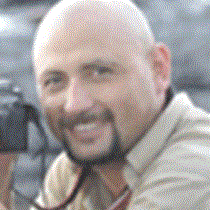Isabela & Fernandina Islands
Today was a day far, far away from civilization. We were in the western-most part of the Galápagos archipelago, and for sure it will stay in our guests’ memories forever.
On the equator, the sun rises and sets around 6:00 in the morning and afternoon all year round. We started our activities right before sunrise with “Cetaceans Observations” from the National Geographic Islander’s outer decks. After half an hour of hard searching we kept looking at the horizon, with the hope that something will jump out of the Pacific Ocean. And yes! There it was: a very big pod of bottle- nosed dolphins showed up and was seen bow riding for almost half an hour.
We continued with our course after this spectacular show offered by our friends of the ocean. From that moment on, we had a strong feeling that our day was going to be amazing. As soon as we anchored at Punta Vicente Roca we lowered our fleet of motorized floating devices for a Zodiac ride. For the first time in months we saw a very big flock of Galápagos penguins. Lots of Pacific green sea turtles, flightless cormorants, sea lions and immature blue-footed boobies were seen as well.
After an hour on the Zodiacs we came back to gear up to enjoy water activities, it was spectacular again! What a morning we had at Isabela Island. Continuing with our program we sailed about 20 nautical miles towards Fernandina Island. This Island is quite barren, proving that it really is the youngest among all in the archipelago. Fernandina Island is a pristine place, meaning it doesn’t have any introduced animals at all.
The island was at its best, with thousands of marine iguanas basking everywhere, and lots of sea lion pups playing in every single tidal pool. Male marine iguanas are becoming extremely territorial, because weather conditions are changing very quickly, and these creatures are getting ready to breed in this part of the archipelago; meanwhile, in the central region, they are not ready yet.
At the end of the day we could not stop thinking that the Galápagos is in fact a wonderful paradise on our planet.



